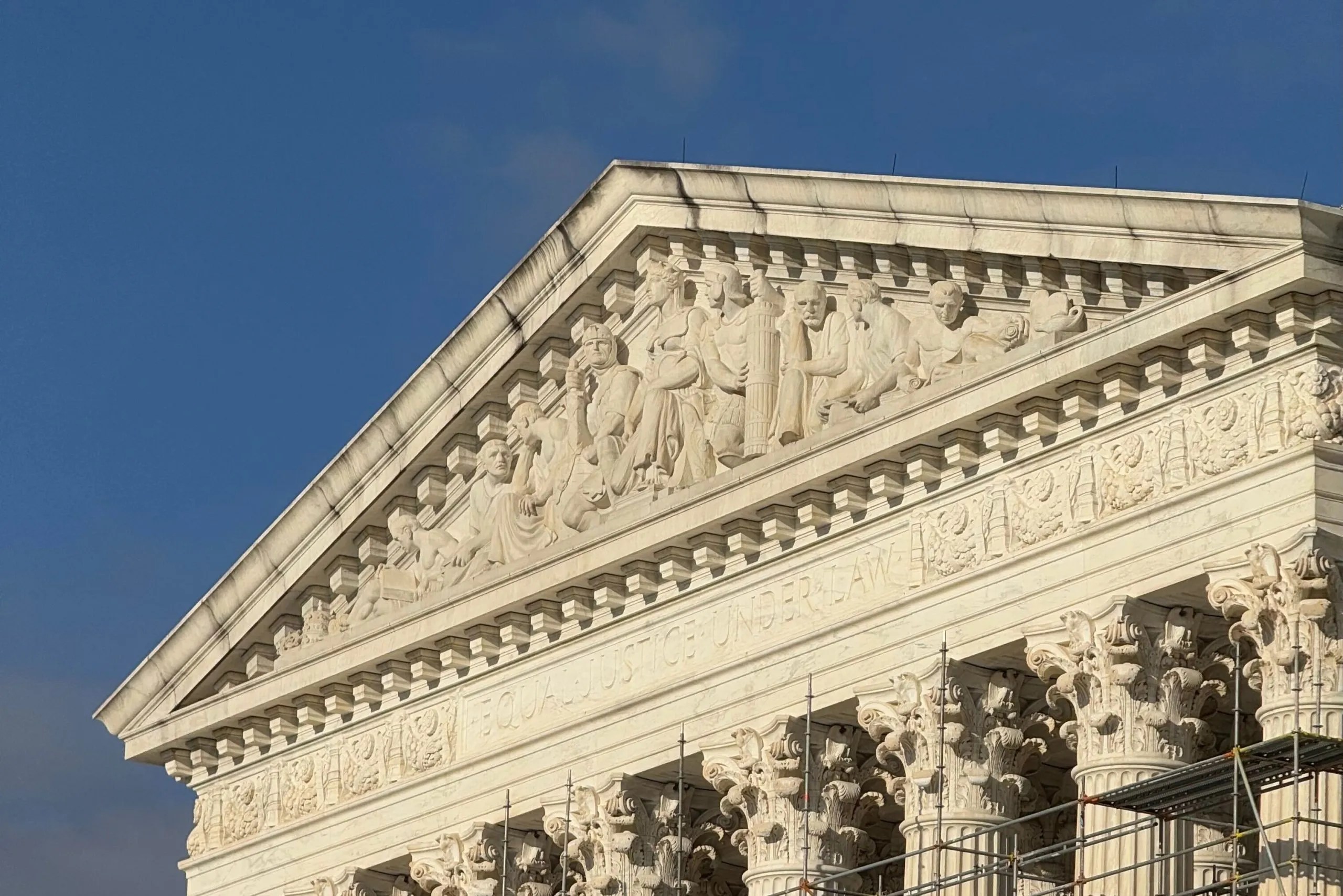SCOTUStoday for Tuesday, October 21


It’s not every day that the phrase “habitual drunkards” appears in a SCOTUSblog story. Keep reading to understand why it plays a role in the court’s new Second Amendment case.
Morning Reads
- Still the Stare Decisis Court (At Least For Now) (Jonathan H. Adler, The Volokh Conspiracy, Reason) — For the past five years, the court has had a six-justice conservative majority, but it’s actually been less likely to overturn precedents than it was during the first 15 years of Chief Justice John Roberts’ tenure, according to data from the Library of Congress and Supreme Court database analyzed by Jonathan H. Adler. “The confirmation of Justice Barrett to replace Justice Ginsburg unquestionably made the Court more conservative–and likely led to the overturning of Roe in Dobbs– [but] it did not produce an immediate increase in the rate at which the Court has been moving the law in a conservative direction by overturning prior precedents.”
- Supreme Court Declines to Hear Corner-Crossing Case (Christine Peterson, Outdoor Life) — The court’s Monday order list included the names of around 100 denied petitions. Among them was a dispute over “corner crossing,” or the practice of briefly passing over private property, or at least “private airspace” to move “between two catty-corner public parcels of land,” according to Outdoor Life. By denying review, the court left in place a ruling in favor of four hunters who used a ladder to move over private land in Wyoming. Specifically, they “placed a ladder between two catty-corner public parcels of land, climbed over, and hunted elk and deer.” The land owner had accused them of causing more than $7 million in damages. “While the four hunters’ case is settled, corner crossing still remains fuzzy in many other states.”
- US Supreme Court declines to revive antitrust lawsuit against Zillow (Mike Scarcella, Reuters) — The justices also declined to take up “a lawsuit by a now-defunct real estate brokerage that accused Zillow and the National Association of Realtors of conspiring to suppress competition in the online home listings market,” according to Reuters. The brokerage, Real Estate Exchange Inc. (REX), had asked the court to review a lower court ruling that said it had “failed to prove Zillow conspired with the National Association of Realtors to make REX’s listings harder to find on Zillow’s platform.”
- Eight years for a would-be assassin defies common sense (Jill Jacobson, The Washington Post) — In a column for The Washington Post, attorney Jill Jacobson revisited the eight-year sentence given to Justice Brett Kavanaugh’s would-be assassin, contending that U.S. District Judge Deborah Boardman’s decision to depart from the recommended sentence of 30 years to life was “outrageous.” “In an era when violent threats and attacks on public officials are alarmingly common, the judiciary bears a unique burden to effectuate deterrence. The court neglected that duty in [Nicholas] Roske’s case,” Jacobson wrote. To explain the eight-year sentence, Boardman cited, among other factors, Roske’s transgender status and that Roske may “face hardship as a result of President Donald Trump’s January executive order on prisons and transgender care.”
- No explanation (Milt Policzer, Courthouse News Service) — In a column for Courthouse News Service, Milt Policzer used humor to criticize the justices’ practice of providing almost no explanation for the moves they make on the interim docket. If the court doesn’t need to explain why it’s putting a lower court order on hold, why should lower courts explain their rulings, he asked. “Anyhow, maybe this is a crisis if good rulings are being thwarted. But consider the bright side — there is now established precedent for not setting precedents and not explaining anything!”
SCOTUS Quick Hits
- Per its order list, released Monday morning, the court added three cases to the docket for the 2025-26 term and denied around 100 other petitions. For more on the additions, see Amy’s story in the On Site section below.
- Also on Monday, lawyers representing the state of Illinois and city of Chicago responded to the Trump administration’s request for the court to clear the way for the president to federalize and deploy the National Guard in Illinois.
- Briefs from the small businesses and states challenging Trump’s tariffs were filed on Monday. Amy’s analysis of the filings will be published this morning.
A Closer Look: Unitary Executive Theory
Perhaps few legal concepts are quite as controversial as the unitary executive theory. Put simply, this theory refers to the claim that the Constitution gives the president “sole authority over the executive branch,” including sole authority over the removal of executive branch officials. Although proponents of the unitary executive theory argue that this is justified on multiple grounds, one major textual source is the Constitution’s vesting clause, which states that “[t]he executive power shall be vested in a President of the United States.” These words are read to support the notion that the president, and the president alone, is in charge of the executive branch.
The unitary executive theory has been in the spotlight for much of this year, as President Donald Trump has moved to remove the heads of federal agencies, and the Supreme Court has – with one notable, but potentially temporary, exception – allowed the removals to proceed.
This term, the court is expected to directly address the unitary executive theory in Trump v. Slaughter, a case that asks whether the court should overturn 1935’s Humphrey’s Executor v. United States, which allowed Congress to limit the president’s authority to fire executive officials. The case stems from Trump’s effort to remove Rebecca Slaughter, a former member of the Federal Trade Commission. At least for now, Slaughter is not serving in that role, because the court on Sept. 22 cleared the way for her removal.
Many court watchers believe the conservative majority will use the unitary executive theory to justify overturning Humphrey’s Executor, based on the idea that this is supported by a textualist and originalist understanding of the constitution.
That said, not all originalists agree. Caleb Nelson, a law professor and former law clerk for Justice Clarence Thomas, recently argued against the unitary executive theory on originalist grounds. Nelson’s essay is particularly interesting because his work “has been cited in more than a dozen Supreme Court opinions, including ones by every member of the six-justice conservative majority,” according to The New York Times.
SCOTUS Quote
“Admittedly, some high school students (including those who use drugs) are dumb.”
— Justice John Paul Stevens in Morse v. Frederick
On Site
From Amy Howe
Court Agrees to Hear Additional Case on Gun Rights
The court on Monday morning announced three additions to its docket for the 2025-26 term. Among the cases is a dispute over a federal statute that prohibits gun possession by users of illegal drugs. In asking the justices to allow the government to enforce that statute, U.S. Solicitor General D. John Sauer acknowledged the importance of the Second Amendment but contended that drug use creates one of the “narrow circumstances in which the government may justifiably burden that right.” He described the law as “a modest, modern analogue” to founding-era restrictions on “habitual drunkards,” as Amy wrote in her analysis of Monday’s order list.
Lawyers representing the state of Illinois and the city of Chicago urged the Supreme Court on Monday afternoon to leave in place a ruling by a federal judge that prohibits the Trump administration from deploying the National Guard to Illinois. Illinois Solicitor General Jane Notz told the justices that “the unnecessary deployment of military troops, untrained for local policing, will escalate tensions and undermine the ordinary law enforcement activities of state and local entities, which would need to divert resources to maintain safety and order.” Learn more about the filing by reading Amy’s analysis.
Contributor Corner
Supreme Court Clerks and Networks of Power
In his latest Empirical SCOTUS column, Adam Feldman explored the “clerkship universe,” analyzing how long it takes to move from graduating law school to clerking at the Supreme Court, which justices are most likely to hire clerks who previously worked for a judge from the opposite party, where former clerks go when their clerkship is over, and how clerkship patterns are changing over time.
Posted in Featured, Newsletters